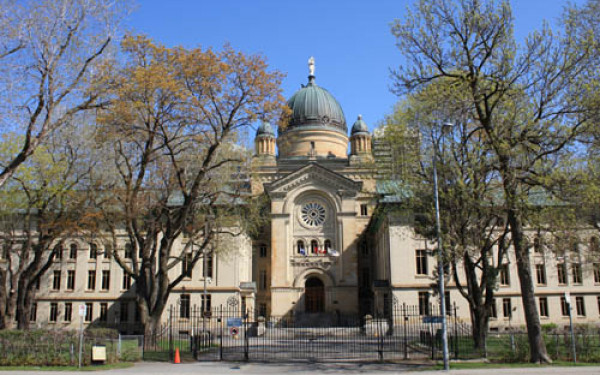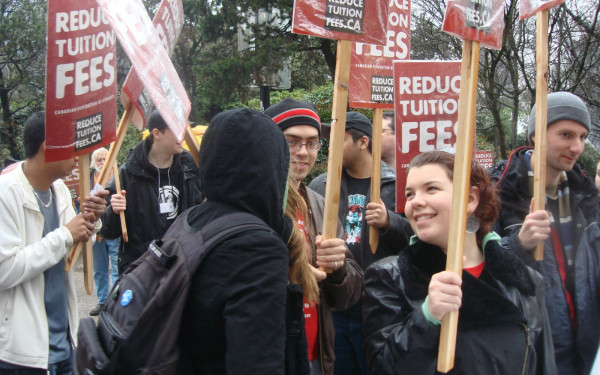Defederation denied
National lobby group won’t recognize results of CSU March referendum
The Concordia Student Union will have to lawyer-up.
On May 28, the CSU called for a motion to have their referendum to defederate from the Canadian Federation of Students recognized by the national lobby group at its annual general meeting in Ottawa.
CFS chairperson Katherine Giroux-Bougard shot the motion down immediately, ruling it out of order. CSU President Prince Ralph Osei then challenged the motion but was promptly defeated, temporarily ending another chapter in the nine month conflict between the CSU and CFS.
The next confrontation between both parties will likely take place in a courtroom.
“We won a referendum to defederate from the CFS,” said Osei. “They won’t recognize it. They prepped their members to vote against us at the general assembly. So now we’ll just have to lawyer-up and see what happens.”
After 72 per cent of Concordia voters cast their ballots against continued membership in the CFS during the student union’s general election in March, the CSU’s legal council advised them to take their referendum results to the national lobby group’s annual general meeting.
Osei, CSU VP External & Projects Adrien Severyns and a delegation of elected CSU executives made their way to Ottawa on May 25 to have Concordia’s referendum results recognized by the CFS. After initially being turned aside, the CSU were given the floor at the meeting’s final day of plenary. Their motion was called out of order because Giroux-Bougard alleged the CSU had over $1,000,000 in unpaid membership fees.
“[Giroux-Bougard] basically told us we had to buy our freedom from the CFS,” said Osei.
In February the CFS sent the CSU a memorandum claiming the John Molson School of Business—along with the Engineering and Computer Science faculties—had not paid membership fees since 1998. The CSU responded by producing a fax from 1998 proving that neither of these faculties had voted to join the CFS and noting that the JMSB and Engineering faculty only became CFS members in 2007.
“We don’t owe them any money, they have no evidence to back that claim up,” said Severyns. “What happened at the assembly was undemocratic, plain and simple. But I can’t say we didn’t expect it.”
Prior to the referendum, Osei said the issue of unpaid dues had not been mentioned as a requisite part of the referendum procedure.
“The CSU followed the referendum procedures correctly,” said Osei.
The CSU abided by rules approved by the British Columbia Supreme Court after Vancouver-based Kwantlen College—now Kwantlen University—attempted to defederate in March 2008, eventually leading to a court showdown.
Two other Quebec student unions made their way to Ottawa along with Concordia with the hope of having their own defederation referendums recognized. McGill University’s Post Graduate Student Society and Concordia’s Graduate Student Association voted to part ways with the CFS in March and April, respectively.
The PGSS ended up leaving the general assembly empty after they tried and failed to pass a motion ratifying their withdrawal from the lobby group. Concordia’s Graduate Student Association weren’t allowed to attend the meeting.
The CFS could not be reached for comment.
This article originally appeared in Volume 31, Issue 1, published June 11, 2010.

__500_333_90.jpg)

_.final_._jpg__600_375_s_c1.png)


__600_375_90_s_c1.jpg)